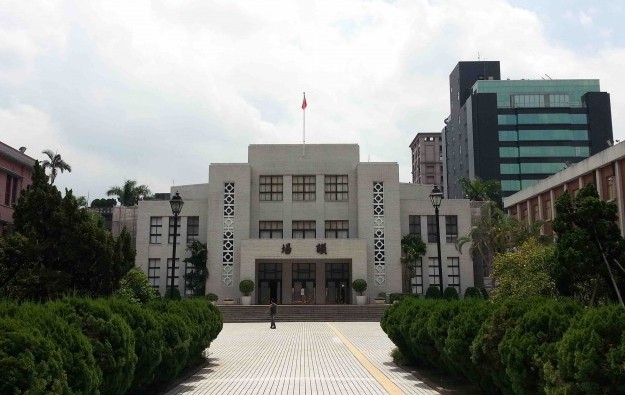Taiwan DPP legislators propose axing casino referendums
Apr 17, 2017 Newsdesk Latest News, Rest of Asia, Top of the deck

Four legislators from Taiwan’s governing Democratic Progressive Party (DPP) have proposed the abolition of an article in the country’s Offshore Islands Development Act that allows local referendums on casino gaming, reported several Taiwan Chinese-language media outlets.
The four lawmakers suggest removing Article 10-2 of the Act, which states a casino resort can be “opened” as long as more than half the valid votes cast in any outlying island referendum approve the setting up of such an establishment.
A prohibition on commercial casino gambling – in relation to Taiwan’s outlying island chains of Matsu, of Kinmen and of Penghu – was lifted in 2009 by Taiwan’s government with the approval of the amended Offshore Islands Development Act. Such business remains illegal on the main island of Taiwan.
In a referendum in July 2012, the residents of the outlying island chain of Matsu voted in favour of casino resorts as a means of attracting tourists and boosting the local economy. But further legislation would be required by the central authorities in Taipei to make such facilities a reality.
Lin Ching-yi, one of the DPP legislators that proposed abolition of referendums on such matters, said earlier this month – as reported by Taiwan’s Central News Agency – that such action would avoid what she termed any further waste of administrative resources, based on the outcomes of an aggregate of three referendums held since 2009 on the topic in the outlying island chains of Penghu and of Matsu. In Penghu’s October 2016 referendum, of the voters who turned out, 81 percent were opposed to the idea of a casino. In a September 2009 referendum on the same topic, more than 17,000 Penghu residents – or 56.4 percent of those that voted – snubbed a proposal to allow casinos there.
Ms Lin was also reported by Central News Agency as saying that gaming was not a concept supported either by popular opinion in Taiwan or by trends in the regional industry.
The other three DPP legislators that backed the abolition of the article were Yang Yao, Chen Man-li and Wu Yu-chin, Taiwan’s Chinese-language media outlet Storm Media reported on Sunday. Mr Yang, who represents the electoral district of Penghu, was cited as saying that any development of casino gaming on an outlying island of Taiwan would be dependent on mainland Chinese patrons – a model that could easily lead to failure, and amounted to a “lack of competitiveness”.
The People’s Republic of China regards Taiwan merely as a province of China, not an independent state. Tension on the issue has risen since the election in January 2016 of President Tsai Ing-wen, of the independence-minded DPP, and has also reportedly led to some cooling of tourism ties between the places.
The proposal from some DPP legislators to remove outlying islands’ rights to casino referendums has already been submitted to the Economics Committee of Taiwan’s single-chamber parliament, the Legislative Yuan (pictured). The committee is responsible for reviewing such a proposal before it can be sent for a second reading by Taiwan legislators.
The lawmakers’ bid to amend the Offshore Islands Development Act followed reports that an official from the Kuomintang political party had filed a petition with the Kinmen County government to hold a referendum on legalising gambling in the locality and allowing the establishment of casinos. Such a referendum could take place in October the earliest, according to local media reports.
President Tsai had previously stated her party’s opposition to the opening of casinos in Taiwan.
Related articles
-
 Taiwan firm eyes Europe slot market via...
Taiwan firm eyes Europe slot market via...Mar 26, 2024
-
 Macau legislators nod first reading of...
Macau legislators nod first reading of...Feb 28, 2024
More news
-
 Donaco EBITDA up y-o-y to above US$4mln...
Donaco EBITDA up y-o-y to above US$4mln...Jul 26, 2024
-
 HK listed Palasino upgrades Czech...
HK listed Palasino upgrades Czech...Jul 26, 2024
Latest News
Jul 26, 2024
Border-casino operator Donaco International Ltd has achieved a 164.17-percent year-on-year increase in its latest quarterly group earnings before interest, taxation, depreciation and amortisation...Sign up to our FREE Newsletter
 (Click here for more)
(Click here for more)
Pick of the Day
”We’ve got more traction outside of Macau at the moment. But Macau’s going be a bigger focus for us”
David Punter
Regional representative at Konami Australia
Most Popular
 Sheraton brand to exit Londoner Macao, to be Londoner Grand July 25, 2024
Sheraton brand to exit Londoner Macao, to be Londoner Grand July 25, 2024  Macau regulator probes unlicensed gaming agents July 24, 2024
Macau regulator probes unlicensed gaming agents July 24, 2024  Philippines gives 20k aliens in POGOs 60 days to leave July 25, 2024
Philippines gives 20k aliens in POGOs 60 days to leave July 25, 2024  Philippines-listed DigiPlus says not affected by POGO ban July 24, 2024
Philippines-listed DigiPlus says not affected by POGO ban July 24, 2024  Sands China 2Q EBITDA down q-o-q amid low hold, renovation July 25, 2024
Sands China 2Q EBITDA down q-o-q amid low hold, renovation July 25, 2024






